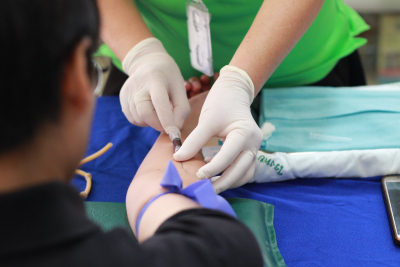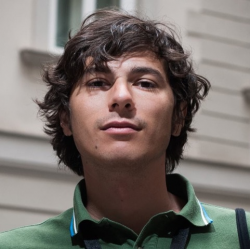


Hanni Stoklosa is the Executive Director of HEAL Trafficking and an emergency physician at Brigham and Women's Hospital (BWH) with appointments at Harvard Medical School and the Harvard Humanitarian Initiative.
She recently co-authored The Public Health Impact of Coronavirus Disease on Human Trafficking, an article that spotlights the key role healthcare professionals can play in fighting trafficking.
The global pandemic of severe acute respiratory syndrome coronavirus 2 exacerbates major risk factors for global human trafficking. Social isolation of families and severe economic distress amplify the risk of interpersonal violence, unemployment and homelessness, as well as increased internet use by under-supervised children. Aggravating the situation are overwhelmed health systems, severe limitations in activities of social service organizations, and decreased contact of healthcare professionals with children. Healthcare professionals have a duty to be alert to possible indicators of trafficking, and aware of available victim resources which can be offered to at-risk patients. Healthcare facilities should take steps to increase public awareness of trafficking and community resources
reads the article’s abstract (you can read the full article here).
“The majority of people who experience human trafficking receive medical care while they are being trafficked. Yet, most health professionals and health systems are ill-equipped to respond to trafficking,” she explains.
“Moreover, COVID brings unique challenges and opportunities for doctors and nurses in caring for trafficked people. Now more than ever, we health professionals must step up and educate ourselves on how to respond to trafficking in safe, trauma-informed ways,” she highlights.
In 2018, Hanni Stoklosa was selected by IAP for the Young Physician Leaders (YPL) programme. “There is nothing quite like it: it is a global meeting of the minds of health care leaders from around the world in a way I have not experienced in my lifetime,” she says.
“The leadership training and networking it afforded me has truly catalyzed my work in building the global anti-trafficking response within health care through HEAL Trafficking,” she adds. Today, HEAL Trafficking is a group of over 3,500 survivors and multidisciplinary professionals in 35 countries who are dedicated to ending human trafficking and supporting survivors through a focus on health, health care, and equity.
IAP recently joined the Sustainable Health Equity Movement and Hanni Stoklosa believes anti-trafficking work and equity work are strongly linked.
“As we discuss in our article baseline risk for trafficking is not equally distributed in society,” she emphasises.
“People of color, gender minorities, migrants, those with a history of abuse, and the working poor are more likely to experience trafficking. The COVID pandemic's impacts will likely magnify these risks among already marginalized populations.”
Hanni Stoklosa highlights that while health care professionals may have very little time to spend with patients in person - especially those without concerns of SARS-CoV-2 infection - even emergency department staff can offer at-risk patients written resources related to worker rights, intimate partner violence, national human trafficking hotlines, and/or immigrant/refugee services. If delivering healthcare via telemedicine, she suggest, the provider can type in the links in the “chat” box. Such resources can be downloaded from the HEAL Trafficking website.
